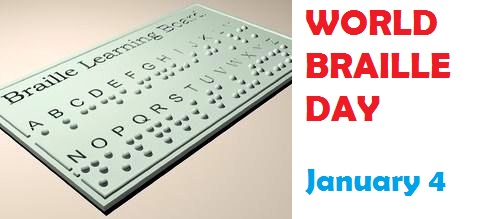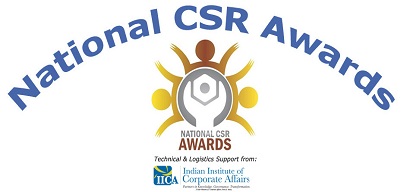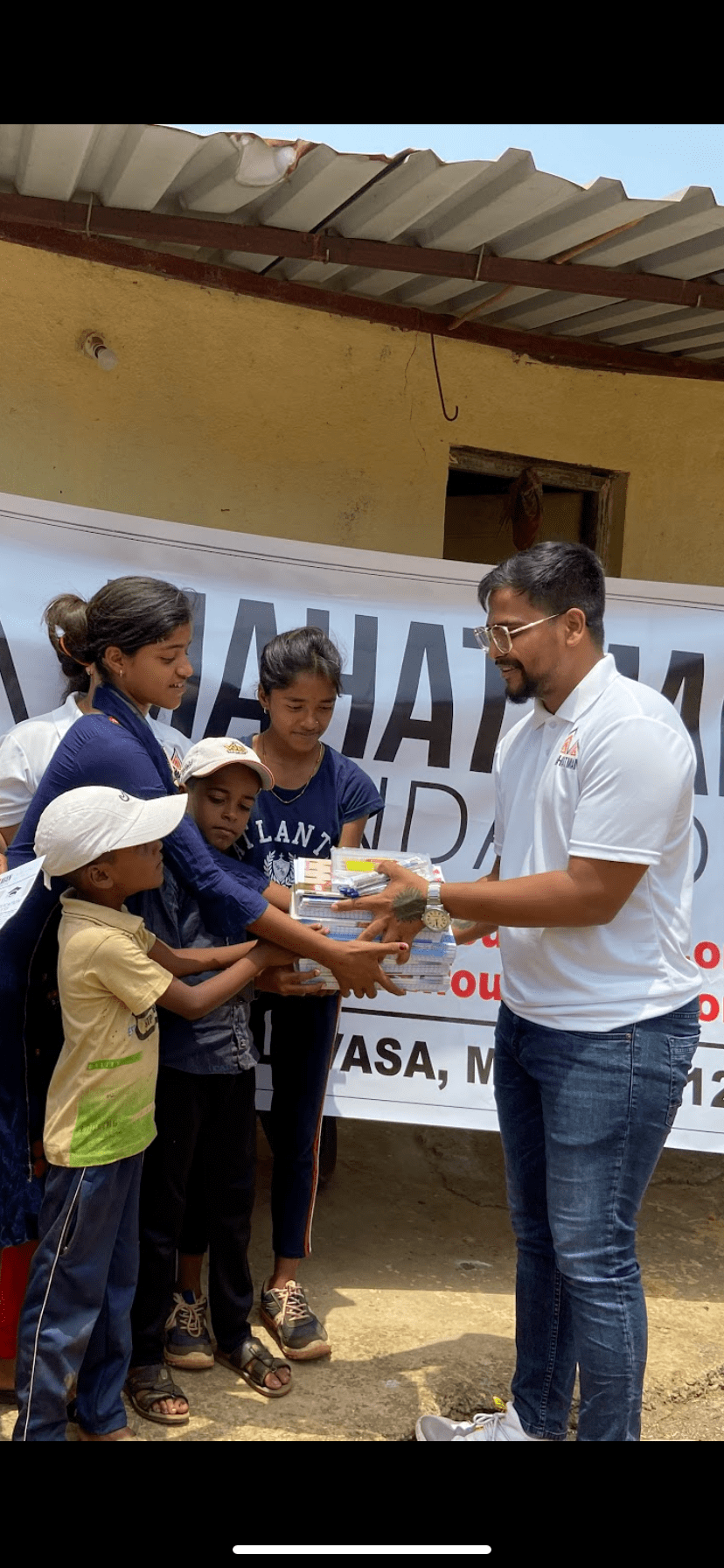- Six Reasons To Bring Millets To The Market!
- Hong Kong Court Makes Landmark Ruling Protecting Transgender Rights
- Substrate Promiscuity Of Fungi Generated Enzyme Laccase Shows Potential In Degrading Industrial Dye Effluents
- Union Minister Of Rural Development Holds A Meeting On ‘Cactus Plantation And Its Economic Usage’
- Ministry Of Tribal Affairs Organised One Day Mega Health Camp ‘Abua Bugin Hodmo-Our Better Health’ At Saraikela Kharsawan, Jharkhand
- Blue Flag Standards For Beaches In The Country
- India-Namibia Sign An MoU On Wildlife Conservation And Sustainable Biodiversity Utilization
- Hydrophobic Ingredients, In Combination With Obsolete Antibiotics, Can Counter Multidrug-Resistant Bacteria
- Promoting Cultivation Of Kala Namak Paddy
Enabling Specially-abled persons through Affirmative Action & Corporate Social Responsibility
Posted by: 0000-00-00 00:00:00 , By Admin
 “When we promote rights and dignity of persons with disability, we are empowering individuals, strengthening economic security and enriching society at large”- Juan Somavia, International Labour Organization (ILO) Director General
“When we promote rights and dignity of persons with disability, we are empowering individuals, strengthening economic security and enriching society at large”- Juan Somavia, International Labour Organization (ILO) Director General
According to Census 2011, 2.21 per cent of the total population in India comprises persons with disability. However as per Planning Commission and World Bank estimates, the population of persons with disability in India is 5 per cent or above. Irrespective of the varying estimates, due to India’s large population size, even the lowest estimate of disabled population makes it equal to the combined population of several countries of Europe.
However, despite constituting a significant percentage of the Indian population, persons with disability (PwDs) in India have limited opportunities for full participation in the social and economic process, including scope for decent employment, to lead a dignified and independent life. Persons with disability (PwDs) in India face many challenges with regard to securing gainful employment despite the guidelines of The Persons with Disabilities (Equal Opportunities, Protection of Rights & Full Participation) Act, 1995 to reserve 3 per cent of all categories of the government jobs for specially-abled persons and provide incentives to public and private sector companies whose total workforce includes at least 5 per cent specially-abled persons.
The real situation with respect to work participation of specially-abled persons is bleak. According to Census 2011, 1 crore and 57 lakh PwDs were in the working age group (15-59 years). Among them approximately 58 lakh PwDs (just 36.3 per cent) were employed as main workers, 17.14 lakhs were employed as marginal workers for three to six months and 4.19 lakhs were employed as marginal workers for less than three months. The public sector companies lag behind in filling up the mandated 3 per cent quota for including specially-abled person in the workforce. Among the total 8,551 disabled employees working in the 50 companies in the Nifty index, 90 per cent are employed by just 10 companies. Out of the 10 companies, 8 are public sector undertakings. IT majors such as Tata Consultancy Services (TCS) and Wipro are the biggest private sector recruiters of specially-abled persons.
Although The PwD Act has laid down guidelines of reserving 3 per cent of the seats in government and government- aided educational institutes for specially-abled youth, their current participation rate in various skill training programmes is extremely low.
The National Policy on Skill and Entrepreneurship Development 2015 does take into account equal and inclusive development stating “there is need for affirmative action in accordance with Constitutional provisions…. to ensure that the skilling needs of the disadvantaged and the marginalized groups like SCs, STs, OBCs, minorities, women and specially-abled persons are appropriately taken care of”. This comprehensive policy framework for skilling and entrepreneurship lays down ambitious plans for implementing Affirmative Action (AA) with regard to skilling and facilitating the inclusion of PwDs in the labour market. And it is an imminent imperative that along with public sector companies, private companies should too come forward to contribute to the national endeavor for inclusive development.
Fiinovation, a research based organization working in the domain of Corporate Social Responsibility (CSR) and Sustainability, strongly advocates that corporates should align Affirmative Action and CSR to empower the historically marginalized groups, including the specially-abled.
Companies can practice Affirmative Action by removing the physical, financial and attitudinal barriers to skilling and employment of specially-abled persons. Both public and private sector companies that fall under the ambit of CSR can channelize their CSR funds for creating barrier free environment or accessible infrastructure in training institutes and thus can align their CSR with the Accessible India Campaign.
Corporates can also conduct quality skill training programmes for youth with disability to equip them with employable skills and bring them at par with their peers and thus help them secure gainful employment in the competitive labour market. Training on entrepreneurship skills also needs to be facilitated to promote self-employment of youth with disability.
Further, training programmes for the PwDs need to be integrated with efforts to facilitate their employment. This calls for a change in the mindset of India Inc. as the challenges faced by a person with disability in India does not stem from their disability but actually arises from the negative perception and inability of the concerned person to judge the individual with disability of their abilities.
To further strengthen their adherence to Affirmative Action, companies need to have a comprehensive written HR policy with explicit mention of employment of PwDs along with due emphasis on a strict anti-discrimination policy in the work place. It is also necessary to create a barrier-free work environment for PwDs, like the accessible workplaces created by Mphasis Ltd.
Post placement support is another significant aspect to ensure that the candidates with disability gets adjusted and retained in their respective work places. Along with an anti-discrimination policy, employees should be sensitized to encourage their colleagues with disability. Interactive sessions, awareness workshops on disability can be effective means to facilitate attitudinal change towards employees with disability. IBM, Mphasis Ltd, Wipro are among the companies which have adopted inclusive strategies to help persons with disability deliver their responsibilities effectively and subsequently facilitate their retention in the workplace.
The adoption and practice of Affirmative Action by India Inc. in tune with their CSR policies can play a pivotal role in securing the rights of persons with disability to skill training and employment and thus promote inclusive development. This, in turn, shall also serve as an effective channel for the companies to contribute towards national policy frameworks to implement the UN Convention on the Rights of Persons with Disabilities and towards achievement of the Sustainable Development Goals (SDGs).
-MOUSUMI DAS
You may like similar blogs

World Braille Day
Deadline: 2022-01-04 00:59:32
Background
Eye conditions are remarkably common. The World Health Organization estimates that globa...

Six reasons to bring millets to the market!
Deadline: 2023-03-20 06:26:22
We may be small, but we are strong. We grow where others cannot. We nurture soils and ecosystems, an...

World Hepatitis Day
Deadline: 2022-07-28 07:43:43
World Hepatitis Day is observed each year on 28 July to raise awareness of viral hepatitis, whic...

Scheme for National Corporate Social Responsibility (CSR) Awards, 2022
Deadline: 2022-07-20 05:29:49
National Corporate Social Responsibility Awards (NCSRA) – 2022
1.Objectives of National CSR ...

School kit distributed to students in six villages around Lavasa city by Mahatman Foundation
Deadline: 2022-07-08 10:27:29
Being away from the city population, villages on hills around lavasa city lack a quality education s...









